
Tela: Honduras' Beachside Gem
Nestled on the northern coast of Honduras, Tela is a paradise for those seeking sun, sand, and natural beauty. This charming town offers pristine beaches lined with palm trees, where the turquoise waters of the Caribbean Sea invite you to relax or take a dip. Whether you are looking to sunbathe, swim, or enjoy water sports, Tela's beaches are the perfect place to unwind. Tela is also a gateway to some of Honduras' most stunning natural parks. The Jeanette Kawas National Park, also known as Punta Sal, boasts lush rainforests, mangroves, and diverse wildlife. Take a guided tour to explore the park's trails, spot exotic birds, or take a boat ride through the mangroves. Lancetilla Botanical Garden, one of the largest tropical botanical gardens in the world, is another must-visit. Here, you can stroll among rare plants and trees, learning about the rich biodiversity of the region. The town itself is full of local charm, with colorful buildings, friendly locals, and a vibrant market where you can sample fresh seafood and local delicacies. Don't miss out on trying the traditional Garifuna cuisine, which features an array of flavors from the Caribbean and Central America. Tela's laid-back atmosphere and natural beauty make it an ideal destination for those looking to escape the hustle and bustle and immerse themselves in a tranquil, picturesque setting.
Local tips in Tela
- Visit Jeanette Kawas National Park early in the morning to see the wildlife at its most active.
- Bring insect repellent for your visits to the national parks and botanical gardens.
- Try the local dish 'Tapado,' a delicious seafood stew, at one of the beachfront restaurants.
- If you plan to swim, be aware of the currents and always check with locals about safe areas.
- Rent a bike to explore the town and nearby areas at your own pace.
Tela: Honduras' Beachside Gem
Nestled on the northern coast of Honduras, Tela is a paradise for those seeking sun, sand, and natural beauty. This charming town offers pristine beaches lined with palm trees, where the turquoise waters of the Caribbean Sea invite you to relax or take a dip. Whether you are looking to sunbathe, swim, or enjoy water sports, Tela's beaches are the perfect place to unwind. Tela is also a gateway to some of Honduras' most stunning natural parks. The Jeanette Kawas National Park, also known as Punta Sal, boasts lush rainforests, mangroves, and diverse wildlife. Take a guided tour to explore the park's trails, spot exotic birds, or take a boat ride through the mangroves. Lancetilla Botanical Garden, one of the largest tropical botanical gardens in the world, is another must-visit. Here, you can stroll among rare plants and trees, learning about the rich biodiversity of the region. The town itself is full of local charm, with colorful buildings, friendly locals, and a vibrant market where you can sample fresh seafood and local delicacies. Don't miss out on trying the traditional Garifuna cuisine, which features an array of flavors from the Caribbean and Central America. Tela's laid-back atmosphere and natural beauty make it an ideal destination for those looking to escape the hustle and bustle and immerse themselves in a tranquil, picturesque setting.
When is the best time to go to Tela?
Iconic landmarks you can’t miss
Muelle de Tela
Explore Muelle de Tela, where the Caribbean beauty meets vibrant culture in stunning Honduras.
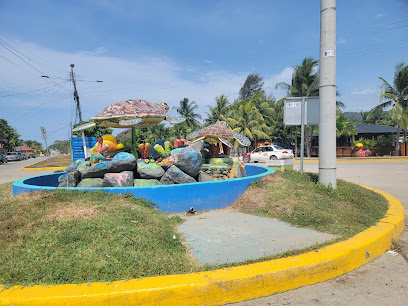
Tela Marine
Explore Tela Marine in Atlántida for a captivating journey into the Caribbean's vibrant marine ecosystems and conservation efforts.
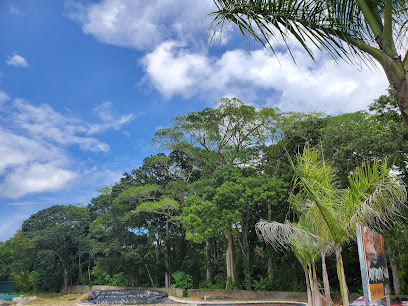
Honduras Shores Plantation
Experience the serene beauty and luxurious comforts of Honduras Shores Plantation, a premier resort hotel in Tela, Honduras.

Tela Honduras (Public Beach)
Explore Tela, Honduras, where pristine beaches, vibrant culture, and delicious cuisine unite for an unforgettable tropical getaway.
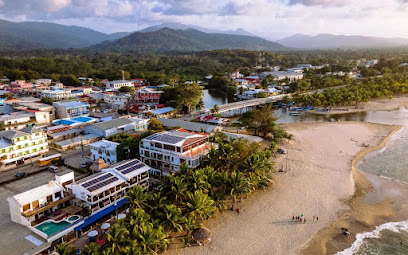
Playa Escondida Beach Club
Experience the tranquility of Playa Escondida Beach Club, a serene resort hotel in Tela, Honduras, perfect for relaxation and adventure seekers.
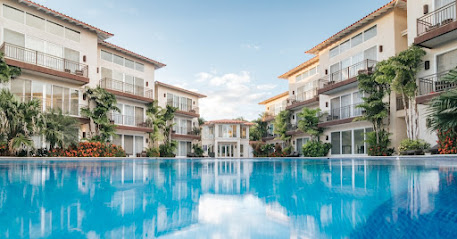
Playa Municipal de Tela
Discover the breathtaking beauty and vibrant atmosphere of Playa Municipal de Tela, a must-visit beach destination in Honduras.
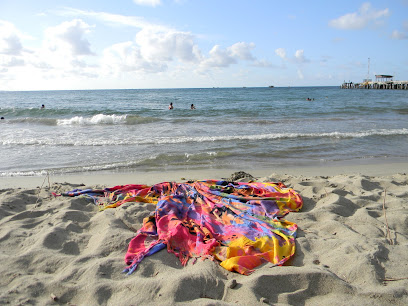
Malecon Guillermo Anderson
Explore the beauty and tranquility of Malecon Guillermo Anderson, a captivating park in La Ceiba offering stunning coastal views and vibrant local culture.
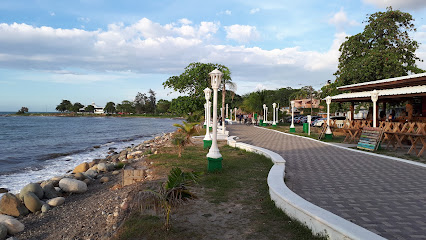
Indura Beach & Golf Resort Curio Collection By Hilton
Discover the luxury and beauty of Indura Beach & Golf Resort, a stunning beachfront retreat in Bahia de Tela, perfect for relaxation and adventure.

Lancetilla Botanical Garden
Experience the beauty of nature at Lancetilla Botanical Garden, a tropical paradise with diverse plant species and serene landscapes near Tela, Honduras.
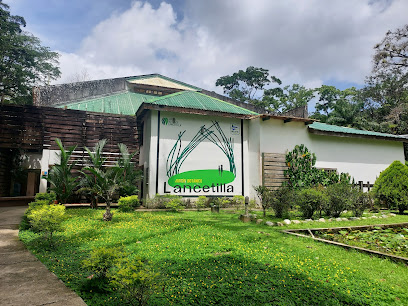
Parque Nacional Pico Bonito
Discover the breathtaking beauty of Parque Nacional Pico Bonito, a hiking paradise filled with diverse wildlife and stunning landscapes.
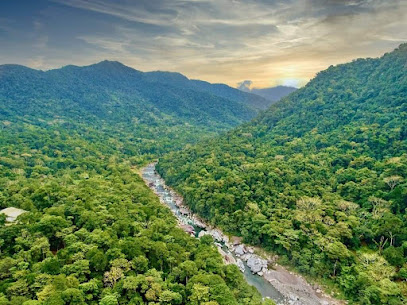
Macaw Mountain Bird Park
Explore the captivating Macaw Mountain Bird Park in Copan, Honduras, where avian beauty meets conservation in a lush tropical setting.
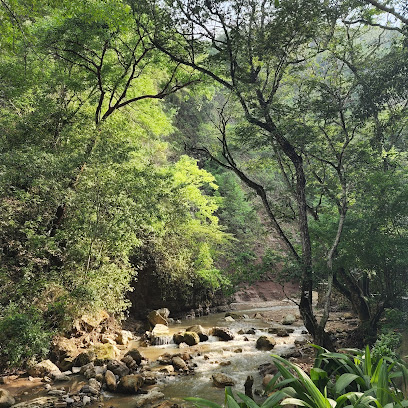
Museo de la Memoria - Antigua Casa Presidencial
Explore the rich history of Honduras at Museo de la Memoria, where the past inspires understanding and reflection on the nation's journey.
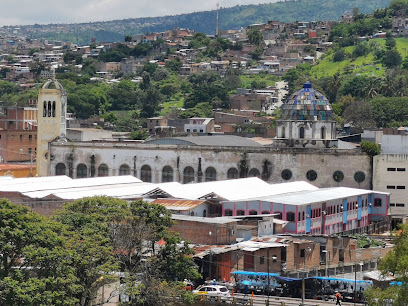
Punta Sal Tela
Explore Punta Sal Tela, a tropical paradise with stunning beaches, vibrant marine life, and unforgettable adventures in the heart of Honduras.
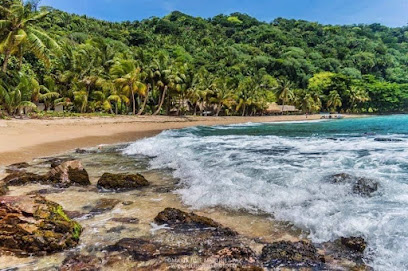
Garifuna Tours
Experience the vibrant culture and stunning landscapes of Tela with Garifuna Tours, your gateway to the Garifuna heritage.
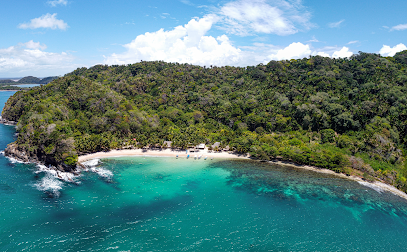
Caribbean Coral Inn Tela
Experience the beauty and culture of Atlántida at Caribbean Coral Inn Tela, your ideal base for exploring Honduras' stunning beaches and natural wonders.

Unmissable attractions to see
Tela Marine
Explore Tela Marine, an enchanting aquarium in Honduras, showcasing vibrant marine life and promoting ocean conservation in an interactive setting.
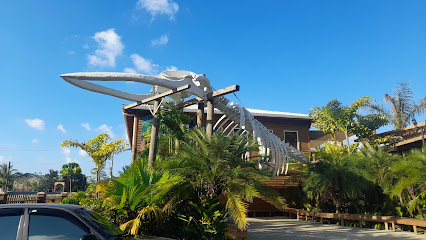
Tela Honduras (Public Beach)
Experience the enchanting beauty of Tela Beach in Honduras, where golden sands meet vibrant culture and endless adventure awaits.
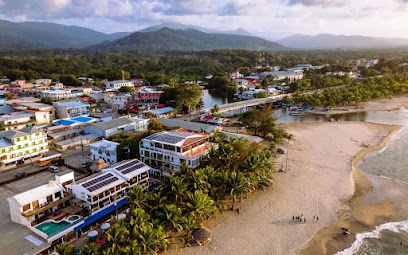
Playa Municipal de Tela
Experience the stunning beauty and vibrant culture of Playa Municipal de Tela, a premier beach destination in Honduras.
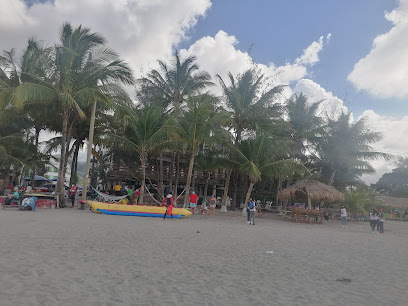
Jardín Botánico Lancetilla
Explore the vibrant flora and unique biodiversity at Jardín Botánico Lancetilla, a must-visit botanical garden in Tela, Honduras.
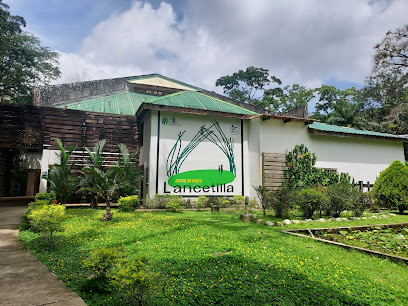
Parque Nacional Jeannette Kawas
Explore the breathtaking beauty of Parque Nacional Jeannette Kawas, a national park in Honduras known for its diverse wildlife, stunning landscapes, and serene beaches.
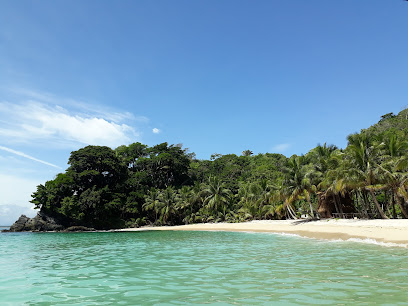
San Juan del Mar
Discover the idyllic beauty and vibrant culture of San Juan del Mar, a perfect beach getaway on the Caribbean coast of Honduras.
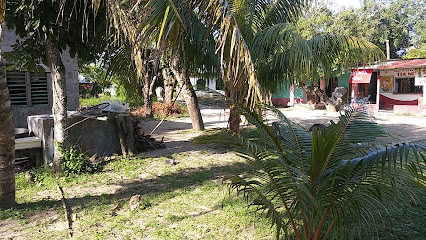
Museo Tela Railroad Company
Explore the fascinating history of Tela at the Museo Tela Railroad Company, where the legacy of the railroad comes alive through engaging exhibits and stories.
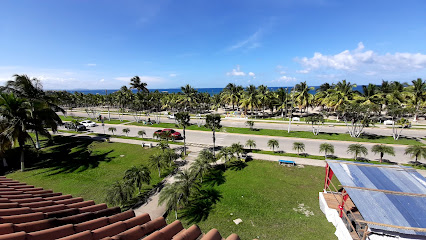
Parque Nacional Punta Izopo
Explore the breathtaking landscapes and rich biodiversity of Parque Nacional Punta Izopo, a hidden paradise in Las Palmas, Atlántida.
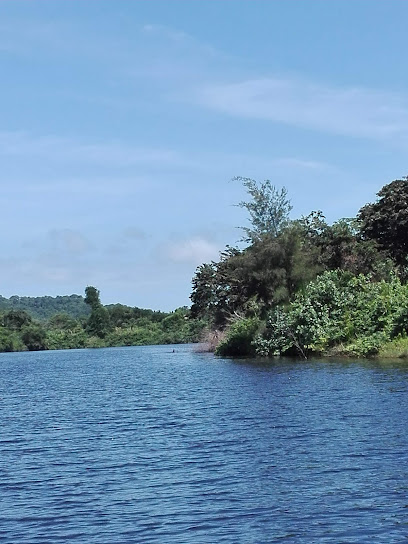
Tornabe
Explore Tornabe, a captivating tourist attraction in Tela, where Caribbean beauty meets rich local culture and unforgettable adventures await.
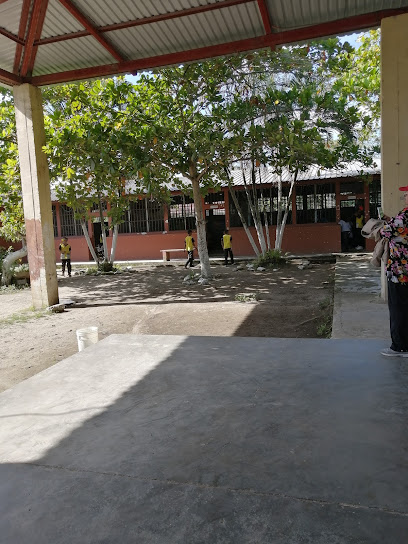
Bahía de Tela
Discover the captivating beauty and cultural richness of Bahía de Tela, a stunning coastal destination on Honduras' Caribbean shores.

Essential places to dine
Hotel & Restaurante Cesar Mariscos
Experience authentic Honduran seafood at Hotel & Restaurante Cesar Mariscos - where every meal is a celebration of flavor and hospitality.
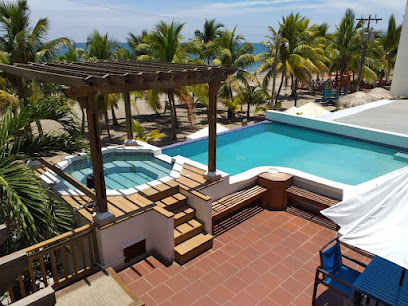
Parrillas Max Burguer • Tela Atlantida
Discover mouthwatering grilled burgers at Parrillas Max Burguer in Tela Atlantida – where flavor meets hospitality.
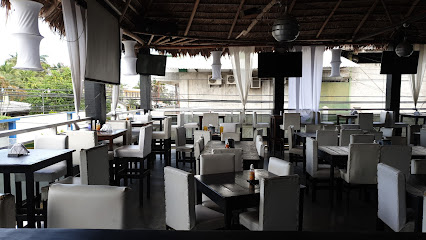
La Casa Del Chef
Experience authentic Honduran cuisine at La Casa Del Chef in Tela - where fresh ingredients meet vibrant flavors.
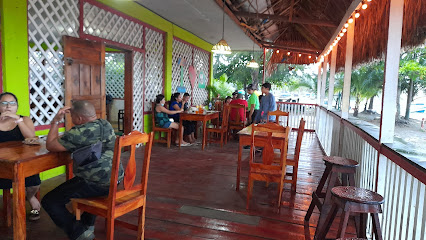
Los Arrieros Grill
Experience authentic Honduran flavors at Los Arrieros Grill in Tela - a perfect blend of taste, ambiance, and culture.
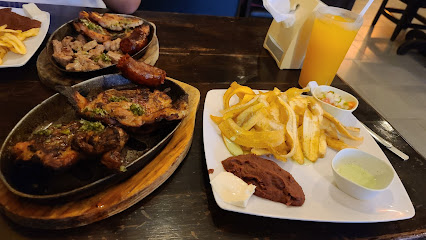
Mr. Taco Tela
Experience authentic Mexican flavors at Mr. Taco Tela—where delicious tacos meet vibrant culture in the heart of Atlántida.
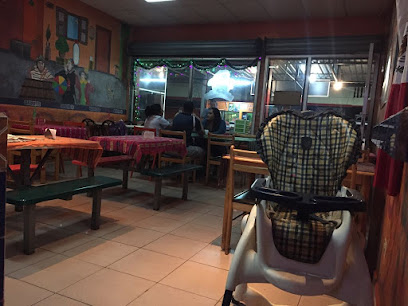
Carmina - Italian Street Food
Discover authentic Italian street food at Carmina in Tela - where every bite transports you straight to Italy!
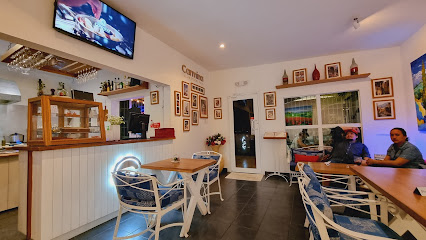
La Casa De Los Chefs/ Playa
Discover La Casa De Los Chefs in Tela - where delicious grilled cuisine meets breathtaking beachfront views.
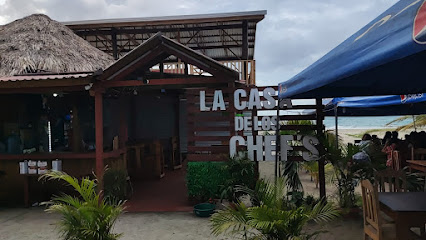
Restaurante Costa Bella
Experience authentic Honduran cuisine in Tela's scenic coastal setting at Restaurante Costa Bella - where flavor meets hospitality.
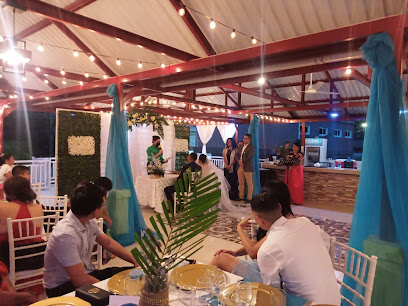
Pizzería Bella Italia
Experience authentic Italian cuisine at Pizzería Bella Italia in Tela - where every dish tells a story of tradition and flavor.
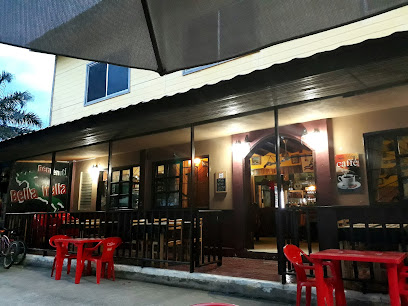
Telamar Restaurante Bella Vista
Experience authentic Honduran cuisine at Telamar Restaurante Bella Vista with stunning ocean views and fresh seafood delights.
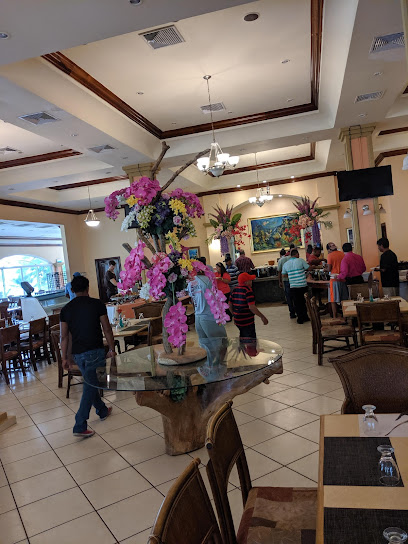
Restaurante Steak House
Discover mouthwatering steaks and vibrant flavors at Restaurante Steak House in Tela, Atlántida—a top choice for food lovers.
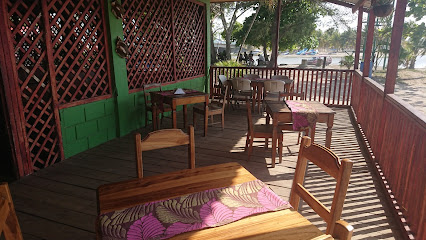
Aloha seafood & grill
Experience the vibrant flavors of coastal Honduras at Aloha Seafood & Grill in Tela - where fresh seafood meets warm hospitality.
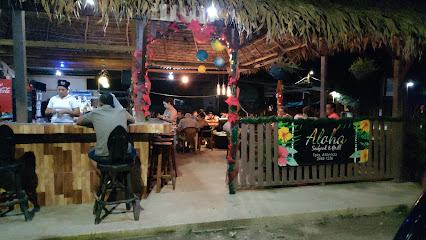
El Chele Baleadas
Experience authentic Honduran flavors at El Chele Baleadas in Tela – home of delicious baleadas and warm hospitality.
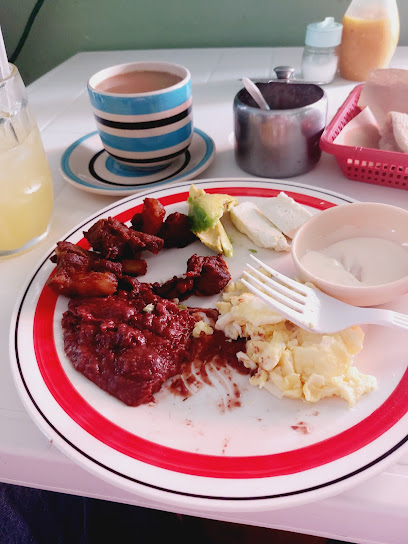
Restaurante Brisas Del Mar
Experience delightful seafood dishes with breathtaking ocean views at Restaurante Brisas Del Mar in Tela, Honduras.
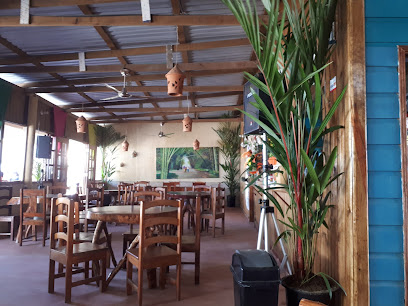
Comedor Don Kike
Experience authentic Honduran flavors at Comedor Don Kike, Tela's favorite restaurant for fresh seafood and local delicacies.
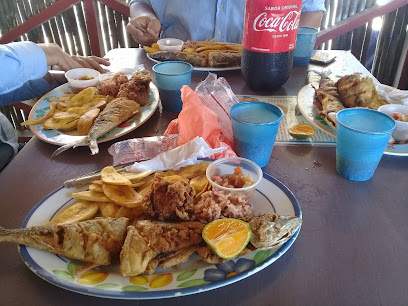
Markets, malls and hidden boutiques
Almacenes Mendel's
Explore the vibrant world of fashion and local culture at Almacenes Mendel's in Tela, where style meets the spirit of Honduras.
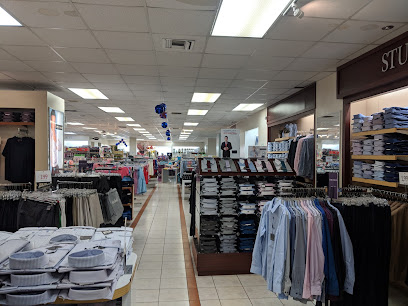
Tiendas Rosy • Tela
Discover the vibrant clothing styles of Honduras at Tiendas Rosy in Tela, a cultural shopping experience that reflects local fashion trends.

El Compadre • Tela
Explore El Compadre in Tela for vibrant clothing and unique accessories reflecting the rich culture of Honduras.
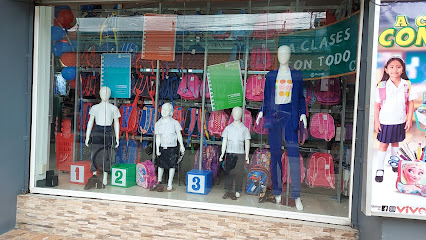
DeTodo
Explore DeTodo in Tela for a unique shopping experience filled with local crafts and everyday essentials, all in the heart of this vibrant coastal town.
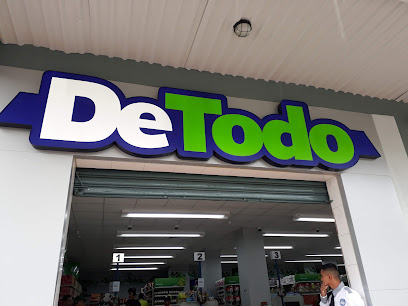
Angela's #2
Explore the vibrant offerings of Angela's #2, a charming general store in Tela, showcasing local crafts and authentic souvenirs.
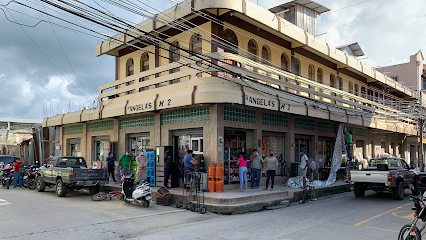
Plaza Venecia Tela
Discover the vibrant Plaza Venecia Tela, where shopping meets local culture in the heart of Honduras, perfect for every traveler seeking unique finds.
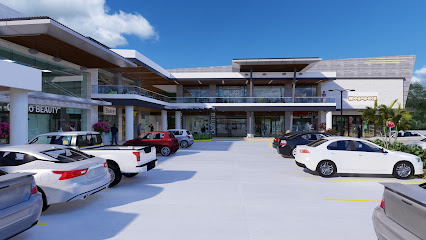
3 Sis
Explore the vibrant fashion of Tela at 3 Sis, where trendy clothing meets local style in a welcoming atmosphere.
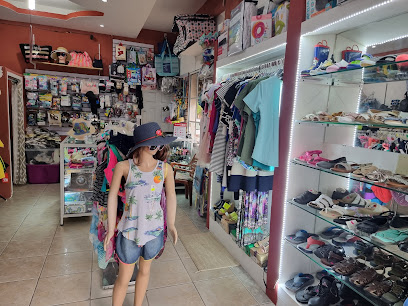
Katriny Kids
Discover stylish and affordable children's clothing at Katriny Kids in Tela, where every outfit is a celebration of childhood fashion.

Unlocktela
Explore the vibrant artistry of Tela at Unlocktela, a charming home goods store featuring unique local crafts and treasures.
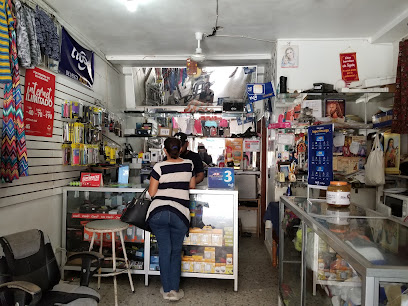
Gabriela's Store
Explore Gabriela's Store in Tela for unique clothing and accessories that celebrate the vibrant culture of Honduras, perfect for any fashion-forward traveler.
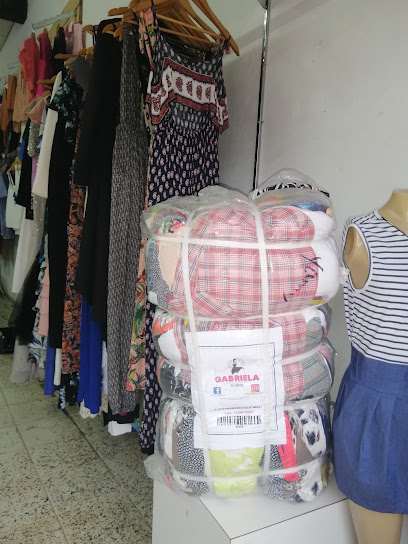
Amuleto
Explore the vibrant artistry of Tela at Amuleto, a boutique offering unique handmade crafts and accessories for every traveler.
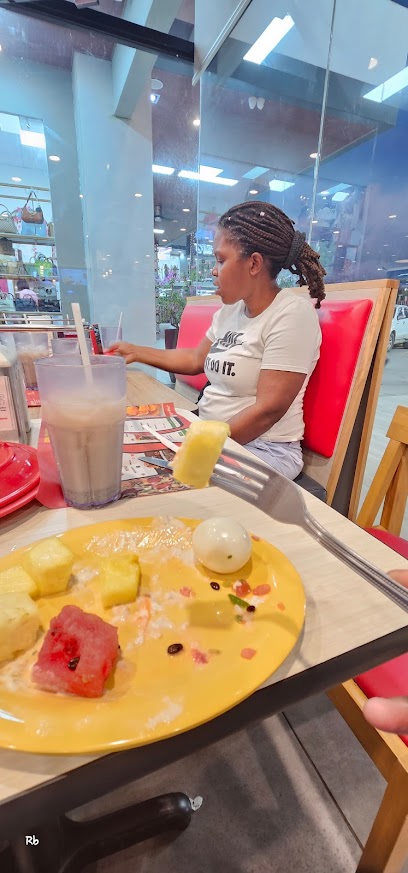
Cositas Digital Shop
Explore the best computer accessories at Cositas Digital Shop in Tela, blending local charm with top-notch tech solutions for every traveler.

K&O Store
Explore K&O Store in Tela for unique fashion pieces that capture the vibrant culture of Honduras, perfect for tourists seeking local style.

Isabella Store
Explore local fashion trends at Isabella Store in Tela, where style and quality meet to create an unforgettable shopping experience.

Easy Shop
Shop at Easy Shop in Tela for stylish and durable boots that complement your travel adventures in the beautiful Atlántida region.
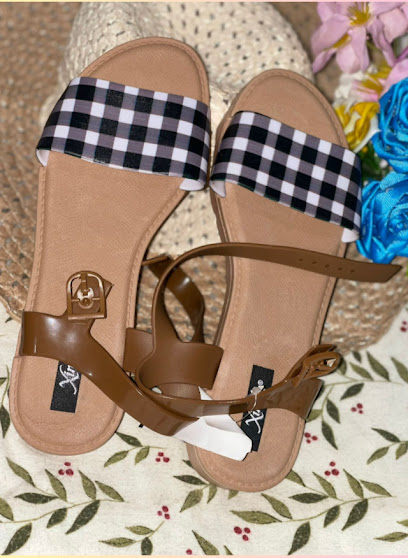
Essential bars & hidden hideouts
Los Dodgers Barrio La Curva
Discover the vibrant nightlife and local flavors at Los Dodgers Barrio La Curva, a top bar destination in Tela, Honduras.
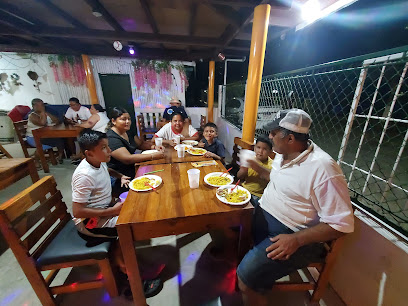
Rosa Negra Blvd
Experience the vibrant nightlife at Rosa Negra Blvd in Tela, where refreshing drinks and a lively atmosphere await every visitor.
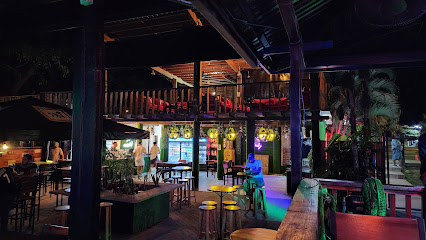
7 Seas Beach Bar & Restaurant
Experience the vibrant atmosphere and delicious flavors at 7 Seas Beach Bar & Restaurant, where beach life meets culinary delight in Tela.
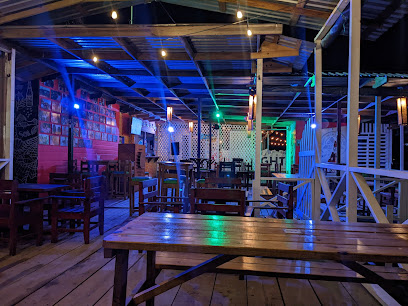
CocoBay
Experience the vibrant atmosphere of CocoBay, where tropical drinks and live music create unforgettable moments in Tela, Atlántida.
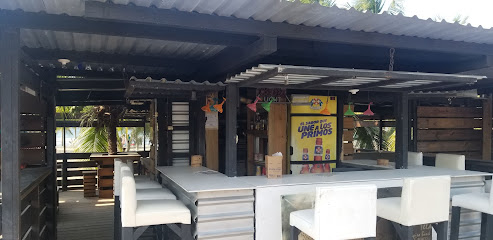
Tavos Bar Tela
Experience vibrant nightlife and delicious cuisine at Tavos Bar Tela, the perfect destination for relaxation and local flavors in Atlántida.
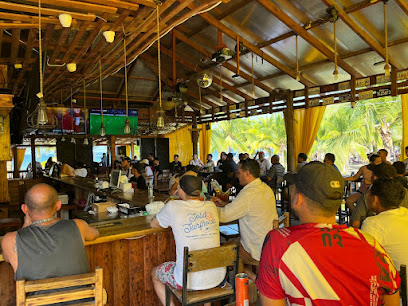
Ocean Blue Bar
Discover the vibrant atmosphere and refreshing drinks at Ocean Blue Bar, your perfect coastal getaway in Tela, Honduras.
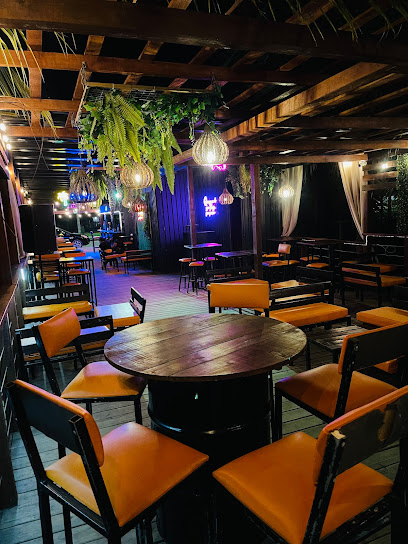
Bahías Bar y Restaurante
Experience the vibrant flavors of Caribbean cuisine at Bahías Bar y Restaurante in Tela, a must-visit for grill lovers and beachgoers alike.
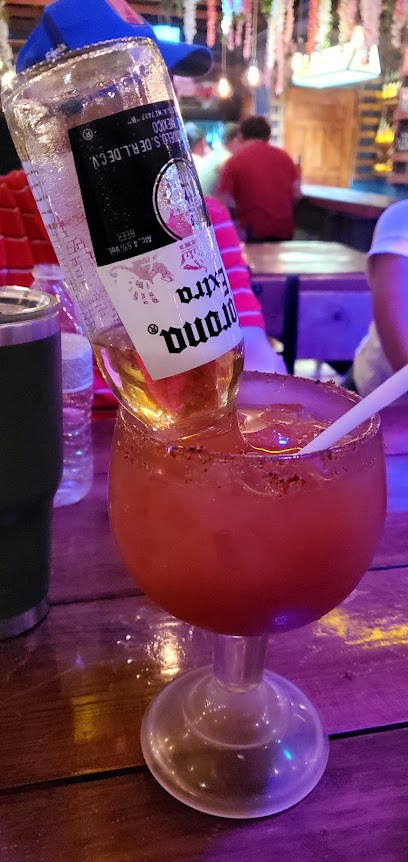
El Changarro
Experience the vibrant atmosphere and local flavors at El Changarro, Tela's charming bar by the coast.
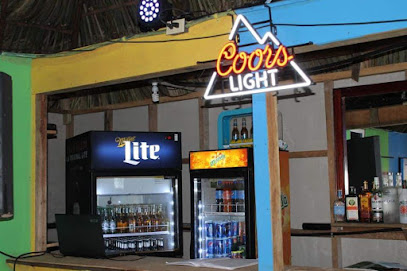
Beer House
Discover a lively bar and restaurant in Tela's Zona Viva, where delicious food and vibrant nightlife combine for an unforgettable experience.
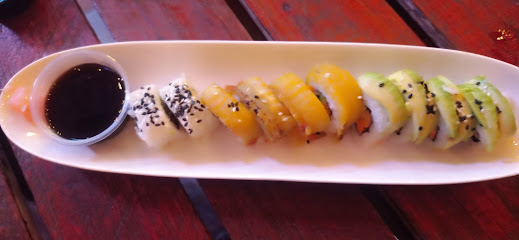
Bar restaurante Las Olas
Discover the vibrant atmosphere and delicious local flavors at Bar Restaurante Las Olas in Tela, a perfect seaside retreat in Atlántida.
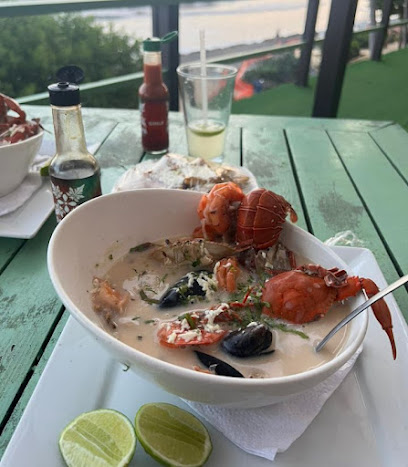
Chunga Bar & Liquor Store
Discover the lively atmosphere of Chunga Bar & Liquor Store in Tela, where refreshing drinks and local culture await every visitor.
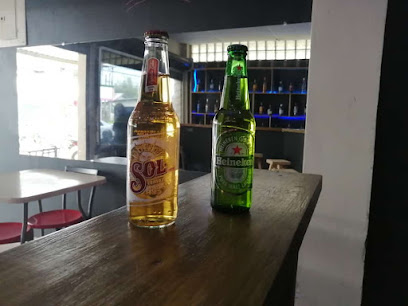
Andys Bar & Restaurant
Experience the vibrant flavors and coastal charm at Andy's Bar & Restaurant in Tela, a must-visit for food lovers and travelers alike.
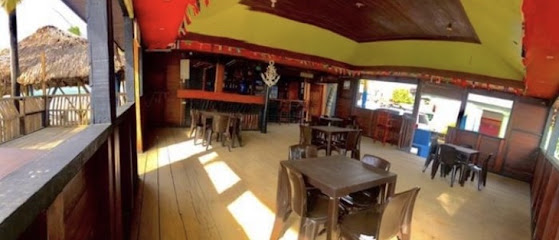
La CA-13 bar
Discover the vibrant nightlife and local flavors at La CA-13 Bar in Tela, Atlántida, where every night is a celebration of culture and fun.
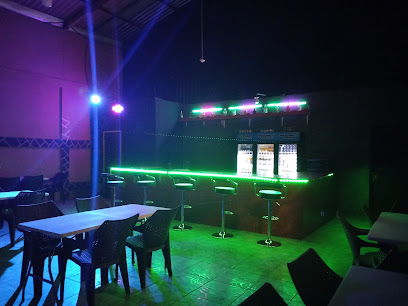
Billares Menvel and Bar
Experience the lively local culture at Billares Menvel and Bar in Tela, where drinks, billiards, and friendly vibes await you.
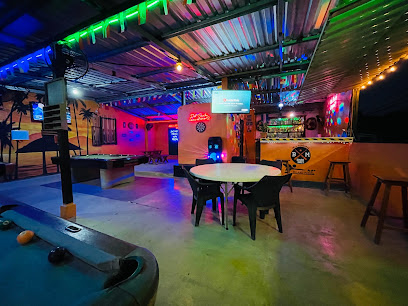
Palmeras bar
Discover the vibrant atmosphere of Palmeras Bar in Tela, where tropical drinks, stunning sea views, and lively entertainment create unforgettable memories.

Local Phrases about Tela
-
- HelloHola
[oh-lah] - GoodbyeAdiós
[ah-dyohs] - YesSí
[see] - NoNo
[noh] - Please/You're welcomePor favor
[por fah-vohr] - Thank youGracias
[grah-syahs] - Excuse me/SorryDisculpe
[dees-kool-peh] - How are you?¿Cómo estás?
[koh-moh ehs-tahs] - Fine. And you?Bien. ¿Y tú?
[byen. ee too] - Do you speak English?¿Hablas inglés?
[ah-blahs een-glehs] - I don't understandNo entiendo
[noh ehn-tyen-doh]
- HelloHola
-
- I'd like to see the menu, pleaseMe gustaría ver el menú, por favor
[meh goos-tah-ree-ah behr ehl meh-noo, por fah-vohr] - I don't eat meatNo como carne
[noh koh-moh kahr-neh] - Cheers!¡Salud!
[sah-lood] - I would like to pay, pleaseMe gustaría pagar, por favor
[meh goos-tah-ree-ah pah-gahr, por fah-vohr]
- I'd like to see the menu, pleaseMe gustaría ver el menú, por favor
-
- Help!¡Ayuda!
[ah-yoo-dah] - Go away!¡Vete!
[veh-teh] - Call the Police!¡Llama a la policía!
[yah-mah ah lah poh-lee-see-ah] - Call a doctor!¡Llama a un médico!
[yah-mah ah oon meh-dee-koh] - I'm lostEstoy perdido
[ehs-toy pehr-dee-doh] - I'm illEstoy enfermo
[ehs-toy ehn-fehr-moh]
- Help!¡Ayuda!
-
- I'd like to buy...Me gustaría comprar...
[meh goos-tah-ree-ah kohm-prahr...] - I'm just lookingSolo estoy mirando
[soh-loh ehs-toy meer-ahn-doh] - How much is it?¿Cuánto cuesta?
[kwan-toh kwehs-tah] - That's too expensiveEso es demasiado caro
[eh-soh ehs deh-mah-syah-doh kah-roh] - Can you lower the price?¿Puedes bajar el precio?
[pweh-dehs bah-hahr ehl pree-syoh]
- I'd like to buy...Me gustaría comprar...
-
- What time is it?¿Qué hora es?
[keh oh-rah ehs] - It's one o'clockEs la una en punto
[ehs lah oo-nah ehn poon-toh] - Half past (10)Media hora (10)
[meh-dyah oh-rah (diez)] - MorningMañana
[mah-nyah-nah] - AfternoonTarde
[tahr-deh] - EveningNoche
[noh-cheh] - YesterdayAyer
[ah-yehr] - TodayHoy
[oy] - TomorrowMañana
[mah-nyah-nah] - 1Uno
[oo-noh] - 2Dos
[dohs] - 3Tres
[trehs] - 4Cuatro
[kwah-troh] - 5Cinco
[seen-koh] - 6Seis
[seys] - 7Siete
[syeh-teh] - 8Ocho
[oh-choh] - 9Nueve
[nweh-veh] - 10Diez
[dyehs]
- What time is it?¿Qué hora es?
-
- Where's a/the...?¿Dónde está...?
[dohn-deh ehs-tah] - What's the address?¿Cuál es la dirección?
[kwal ehs lah dee-rehk-syon] - Can you show me (on the map)?¿Puedes mostrarme (en el mapa)?
[pweh-dehs mohs-trahr-meh (ehn ehl mah-pah)] - When's the next (bus)?¿Cuándo es el próximo (autobús)?
[kwan-doh ehs ehl proh-ksy-moh (ow-toh-boos)] - A ticket (to ....)Un boleto (para ....)
[oon boh-leh-toh (pah-rah)]
- Where's a/the...?¿Dónde está...?
History of Tela
-
Before the arrival of Europeans, the area that is now Tela was inhabited by indigenous groups such as the Maya and the Lenca. These civilizations left behind archaeological evidence of their complex societies, including ruins and artifacts that provide insight into their advanced agricultural practices, trade networks, and spiritual beliefs.
-
Tela was discovered by Spanish explorers in the early 16th century. The Spanish established control over the region, incorporating it into the Captaincy General of Guatemala. The colonial period saw the introduction of European culture, religion, and economic systems, which greatly impacted the indigenous populations. Tela served as a strategic location for the Spanish as they expanded their influence in Central America.
-
In the late 19th and early 20th centuries, Tela became a focal point of the banana industry. The United Fruit Company (now Chiquita Brands International) established extensive banana plantations and infrastructure in the area. This period, often referred to as the 'Banana Boom', brought significant economic development but also led to social and labor conflicts, as workers sought better conditions and wages.
-
Throughout the 20th century, Tela continued to grow and diversify its economy. The decline of the banana industry led to the rise of other agricultural products, such as African palm oil. The city also began to develop its tourism sector, capitalizing on its natural beauty, beaches, and proximity to national parks and reserves. This period saw the construction of hotels, restaurants, and other amenities to cater to international visitors.
-
Tela is rich in cultural traditions, influenced by its diverse population, including Garifuna, Mestizo, and indigenous communities. The Garifuna people, in particular, have a strong presence in the region, contributing to its vibrant music, dance, and cuisine. Key cultural events include the Garifuna Settlement Day, celebrated with traditional drumming, dancing, and feasts, as well as the annual Carnival, which features parades, music, and colorful costumes.
-
In recent decades, Tela has become known for its environmental conservation efforts. The establishment of protected areas such as the Jeannette Kawas National Park and Punta Izopo National Park has helped preserve the region's diverse ecosystems, which include mangroves, coral reefs, and tropical rainforests. These parks not only protect wildlife but also offer opportunities for eco-tourism, such as bird watching, hiking, and snorkeling.
Tela Essentials
-
Tela is located on the northern coast of Honduras. The nearest international airport is Ramón Villeda Morales International Airport (SAP) in San Pedro Sula, approximately 90 kilometers away. From San Pedro Sula, you can take a taxi, shuttle, or rent a car to travel to Tela. The journey typically takes around 1.5 to 2 hours by road. Alternatively, there are bus services that operate between San Pedro Sula and Tela, offering a budget-friendly travel option.
-
Tela is a relatively small town, and many of its attractions are within walking distance. For longer trips within the town, local taxis are readily available and reasonably priced. Mototaxis (three-wheeled vehicles) are also a popular mode of transport for short distances. Public buses operate within Tela and connect to nearby towns and villages. Renting a car can be a convenient option if you wish to explore the surrounding areas at your own pace.
-
The official currency in Honduras is the Honduran Lempira (HNL). Credit cards are accepted in most hotels, restaurants, and larger shops, but it is advisable to carry cash for smaller establishments and local markets. ATMs are available in Tela, but it's wise to withdraw sufficient cash before traveling to remote areas. US dollars are also widely accepted, especially in tourist areas, but the exchange rate may vary.
-
Tela is generally safe for tourists, but it is important to take standard precautions. Avoid walking alone at night in unfamiliar areas and keep an eye on your belongings in crowded places. Some neighborhoods, such as the outskirts of Tela, have higher crime rates, so it is best to stay within well-known and populated areas. Be cautious when using ATMs and avoid displaying valuables.
-
In case of emergency, dial 911 for immediate assistance. The local police station and medical facilities are available in Tela. It is recommended to have travel insurance that covers medical emergencies. For minor health issues, there are pharmacies in the town where you can purchase over-the-counter medications. Additionally, the Tela Hospital provides medical services for more serious conditions.
-
Fashion: Do dress modestly, especially when visiting religious sites or rural areas. Avoid wearing revealing clothing. Religion: Do respect local customs and traditions. Always show reverence when visiting churches. Public Transport: Do be respectful and courteous to fellow passengers. Don’t eat or drink on public transport. Greetings: Do greet people with a handshake. A warm smile and a friendly greeting go a long way. Eating & Drinking: Do try local delicacies and accept food offerings graciously. Don’t refuse hospitality, as it is considered impolite.
-
To experience Tela like a local, visit the central market where you can buy fresh produce and traditional Honduran goods. Engage with locals, as they are often friendly and willing to share stories about the town's history and culture. Don’t miss visiting the nearby Lancetilla Botanical Garden, one of the largest botanical gardens in Latin America. For a unique experience, take a boat tour through the Punta Izopo Wildlife Refuge, offering a chance to see diverse wildlife and mangrove forests.
Trending Landmarks in Tela
-
Muelle de Tela
-
Tela Marine
-
Honduras Shores Plantation
-
Tela Honduras (Public Beach)
-
Playa Escondida Beach Club
-
Playa Municipal de Tela
-
Malecon Guillermo Anderson
-
Indura Beach & Golf Resort Curio Collection By Hilton
-
Lancetilla Botanical Garden
-
Parque Nacional Pico Bonito
-
Macaw Mountain Bird Park
-
Museo de la Memoria - Antigua Casa Presidencial
-
Punta Sal Tela
-
Garifuna Tours
-
Caribbean Coral Inn Tela
Nearby Cities to Tela
-
Things To Do in San Pedro Sula
-
Things To Do in Utila
-
Things To Do in La Ceiba
-
Things To Do in Roatán
-
Things To Do in Puerto Barrios
-
Things To Do in Placencia
-
Things To Do in Livingston
-
Things To Do in Punta Gorda
-
Things To Do in Hopkins
-
Things To Do in Rio Dulce
-
Things To Do in Dangriga
-
Things To Do in Gracias
-
Things To Do in Santa Rosa de Copán
-
Things To Do in Tegucigalpa
-
Things To Do in Belize City









